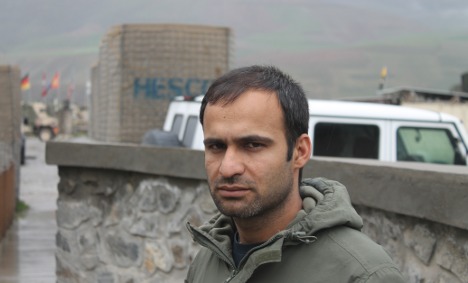Those who have been working for the foreign forces that make up the ISAF international mission in Afghanistan could find themselves in terrible danger once the mission ends, said Elke Hoff, a defence expert from Chancellor Angela Merkel’s coalition partners the Free Democratic Party.
“Many of the locals who have been working for the Bundeswehr in northern Afghanistan have, due to their work, put themselves in particular danger,” she said.
“We cannot simply abandon them after the withdrawal in 2014.”
Last Sunday the bodies of five men who had been working at a NATO base 40 kilometres from Kabul were found by the road. Their hands had been tied and explosives attached to their bodies, then detonated.
Not only Taliban forces, but also many other Afghans, hate those who work for the foreigners, labelling them collaborators who are selling out their country.
Ahmad Feroz, a 21-year-old who works for the Germans as a translator, told Die Welt newspaper that his family were anxious every time he left the house.
“They are afraid that they will kill me because I work for the enemies from the west,” he said.
He is one of around 460 Afghans who work for the German military’s language service, while hundreds more locals have other jobs in and around the base as cooks, gardeners and cleaners. The Bundeswehr employs 1,561 local people while another 160 have jobs with German police training units.
When the ISAF mission ends in 2014, they lose their well-paid jobs – Feroz told Die Welt he was being paid €700 a week, which is around ten times the average Afghan wage. It is enough to take care of his parents and his three younger siblings, as well as his own studies, which he told the paper he was half a year from finishing.
But it is not only the loss of income that the Afghan workers fear – they will also become even more vulnerable to attack when the forces leave – particularly the translators and drivers who are seen and identified out and about with the foreign soldiers and police officers.
“We must finally clarify who from those Afghans affected will be exposed to particular risk, and thus should get residence permission to be in Germany,” said Hoff.
One army officer in Berlin estimated around 500 Afghans had put themselves in such danger thanks to their work with the German forces that they should be allowed to come to Germany.
But some would be offered continued work with the army and police officers who will remain as advisors in Afghanistan after 2014. Others could be offered help to enable them to remain in Afghanistan.
They must be taken care of one way or another – otherwise, apart from any moral duty to do so, it would be even more difficult to get locals to help German forces in other countries in the future, said Hoff.
She said the US was passing laws which would grant residency for Afghans who had worked for ISAF for a number of years.
The Local/hc


 Please whitelist us to continue reading.
Please whitelist us to continue reading.
Member comments